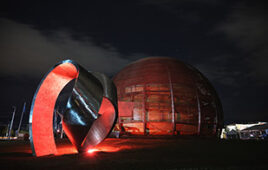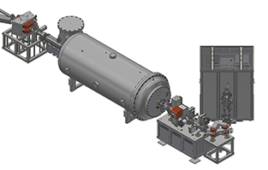Weathered oil in the form of tar has washed up on some Louisiana beaches from Gulf waters churned by Hurricane Isaac, prompting restrictions of fishing in some waters and tests to determine whether the source is submerged oil from the 2010 Deepwater Horizon disaster.
“I’d say there’s a smoking gun,” said Garret Graves, Gov. Bobby Jindal’s top adviser on coastal issues. He said tests were being done to verify the source of the oil.
“It’s an area that experienced heavy oiling during the oil spill,” he said.
Officials Tuesday evening restricted fishing in waters extending a mile off a roughly 13-mile stretch of coastline from Port Fourchon eastward to just west of Caminada Pass.
Recreational rod and reel fishing can continue but commercial and recreational shrimping, crabbing and commercial fin fishing was prohibited there.
The state Wildlife and Fisheries Department said there was a large mat of tar on one beach and concentrations of tar balls on adjacent beaches. Graves said later surveys found several more mats. The size of the tar mats was not immediately clear. Graves said high water has prevented a thorough examination.
“With many of the southern parishes of Louisiana still inundated with flood waters and not accessible at this time, it is premature to make any claims about possible oiling there — whether it is from the Deepwater Horizon accident or any other source,” BP PLC said in a statement emailed late Tuesday.
It said BP was awaiting test results from an area west of Grand Isle.
“As state officials have made clear, it is important to fingerprint the residual oil to determine its origin. If any of it is connected to the Deepwater Horizon accident, BP stands ready to remove it under the direction of the Coast Guard’s federal on-scene coordinator,” the statement added.
“In Florida, Alabama and Mississippi, shoreline quick assessments were initiated on Saturday, Sept. 1 and there have been no indication thus far of Deepwater Horizon residual oil in areas outside of existing cleanup operations. Despite these early indications, we will wait to draw firm conclusions until full surveys have been completed.”
Earlier Tuesday, Coast Guard Capt. Peter Gautier said the Coast Guard is investigating about 90 pollution cases in the wake of Hurricane Isaac.
They include six minor leaks and oil sheens from sources such as tank batteries and wellheads. Such leaks are expected after hurricanes, he said.
Gautier said oil found on about eight birds at Myrtle Grove came from storage tanks at a closed terminal.
In Braithwaite, chemicals leaked into water and air from tanks at a storage facility, but all are under control, he said.
Gautier said some railroad tank cars containing hazardous chemicals overturned during the storm but are secure. Isaac also grounded three deep-draft ships, he says, but the vessels are not leaking.




